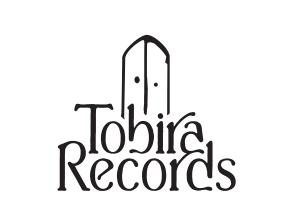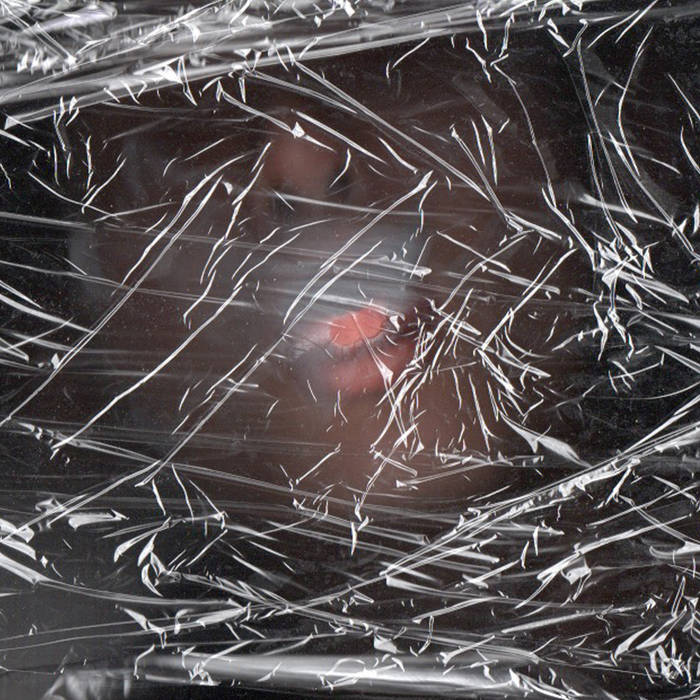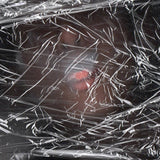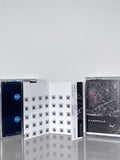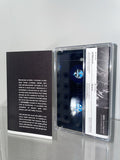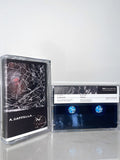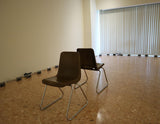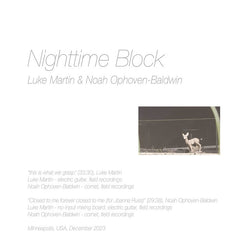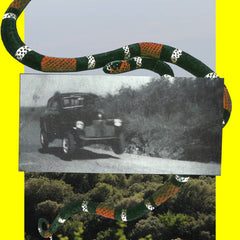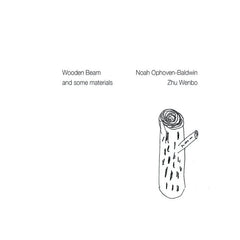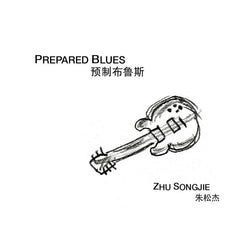Huang Shan // A cappella TAPE
- Availability:
台湾・高雄の実験音楽家Huang Shanが、2023年5月に中国・北京の実験レーベルZoomin' Nightから20本限定でリリースしたカセットです。
100日間、毎日30分録音した音声日記をインスタレーション作品100 Shitsのライブ録音です。A面にはそれらの100の音素材を重ねた物音ノイズ作品を収録。DLコード付属。
以下、作家本人による解説です。
"2022年から、私はそれらの重層的で、濃密で、乾いていて、言葉を超えた事柄を、音声日記という形で処理し始めた。徐々に、私は50台のカセットプレーヤーに封印された100の変調された声の録音を集めた。6月、高雄のHallucinationで開催された個展「100 Shits」(一百天的訴辯)では、これらのカセットプレーヤーをセットした。この展覧会では、観客がテープの再生方法を選ぶことができた。
展覧会では、2つのトラックを収録した『A Cappella』と題された音楽作品も展示された。A面は100のボーカル録音を重ねたもので、B面は展示会でのライブ録音である。"
Zoomin' Nightその他作品はこちら /// Click here to see more Zoomin' Night releases available at Tobira.
-----------------------------------
Includes DL code.
Artist statement by Huang Shan:
"Beginning in 2022, I started to process those layered, dense, dry, and beyond-words matters in the form of a voice diary. Gradually, I gathered a collection of 100 modulated voice recordings that were sealed on 50 cassette players. In June, these cassette players were set in my solo exhibition "100 Shits"(一百天的訴辯) staged at Hallucination in Kaohsiung. It allowed the audience to select how they would like the tapes to play.
The exhibition also included a musical work entitled "A Cappella," which features two tracks. Side A is a combination of 100 overlapped vocal recordings, while Side B is a live recording from the exhibition."
++
Interview with Zhu Wembo:
"
Zhu Wenbo: Fangyi Liu introduced me to your work. I gather that you don’t have a background in music (including experimental music), nor do you have much of a history with art. Anyway, would you like to tell everyone a little about yourself?
Huang Shan: While I was attending university, some friends and I would do little things at home, just messing around. At that time, the experimental music community in Kaohsiung was really small, naturally everybody got to know each other through mutual introductions. We would hang out at Fangyi’s house, or places like Zigong and Doupi where we had little jam sessions. There were also a few performances in small venues. Most of the time, we just happened to run into each other and then for fun we would play music together.
Zhu Wenbo: 100 Shits is a pretty crazy project — I was actually kind of stunned when I first heard about it. Every day for a hundred days you recorded 30 minutes of voice material, out of which you made 50 unique tape recordings. Then for the exhibition you loaded them into 50 cassette players which were distributed in a room. Audience members were then free to interact with them as they pleased.
How did you come up with this project? Have you done such a long, Sisyphean undertaking before? Could you walk us through what your thought process was?
Huang Shan: When I’m busy working away at something by myself, I often say things to myself, or make random meaningless sounds. Once when I was tidying up for an exhibition in the performance space at Hallucination, the strong reverberation in there gave me the idea to have my voice transmitted throughout the room.
As for the recording process, as far as I’m concerned, I was just making music. All the sounds that I made and recorded were sounds that I could use to make a sample pack of myself, which I then experimented with, combining different ‘samples’ together to see what they sounded like. I was really happy to be invited to do this release, because it was another chance to mix them into something different.
Zhu Wenbo: What was your recording process like? What equipment did you use, did you record directly to tape? Even if each time it was only for 30 minutes, wasn’t it a bit of an ordeal to record non-stop for a hundred days? I wonder whether, over the course of those hundred days, your thoughts about the project changed at all?
Huang Shan: For raw vocals I recorded directly into the cassette recorder, and for more detailed sounds and effects I went through a microphone. It depended on what I wanted to record that day, which wasn’t based on any particularly deep considerations. Even though a hundred days sounds like a long time, each day the recording was just a small amount of time that was fun and easy to get done.
About halfway through the project, I was getting a bit greedy playing with too many effects pedals and it started to sound like the music was going somewhere I didn’t want it to. I discarded some of those recordings and from then on I limited myself to just using EQ and pitch modulation.
Zhu Wenbo: Let’s talk about the exhibition. The B-side of A cappella is a recording of yourself operating the cassette players that you did in Hallucination before the opening of the exhibition. Later, when the audience was taking part, what was it like? How did the exhibition compare with your expectations?
Huang Shan: Apart from when I was there to see two other performances, after the opening I was rarely inside the exhibition because I didn’t want to intrude, and also because I felt a bit awkward. Anyway, I would basically divide the audience into two: there were those who out of curiosity turned on the odd cassette player here and there, and then a few ‘big eaters’ who turned on all 50 all at once. There were also some people who didn’t know how to operate a tape recorder, it’s technology from a bygone era after all, so they just took a few photos and then left. I didn’t have any specific expectations, so I was pleasantly surprised by the way things unfolded.
Zhu Wenbo: On the inside leaf of the case there is a photo of the 50 cassette players. Did you buy them specifically for this project? Seems like it would have cost a fair bit! After the month-long exhibition ended, what did you do with the tapes and the cassette players?
Huang Shan: I bought them specially for the project, because I wanted recorders that were conveniently sized and easy to use. I found an out-of-production model, and eventually through all kinds of channels I managed to scrape together enough of them. For me, the overall expense was pretty high, but it was manageable because I bought them gradually over the duration of the project. Since the exhibition ended, I haven’t sold a single one, so they’re all being stored at home."
Artist : Huang Shan
Label : Zoomin' Night
台湾・高雄の実験音楽家Huang Shanが、2023年5月に中国・北京の実験レーベルZoomin' Nightから20本限定でリリースしたカセットです。
100日間、毎日30分録音した音声日記をインスタレーション作品100 Shitsのライブ録音です。A面にはそれらの100の音素材を重ねた物音ノイズ作品を収録。DLコード付属。
以下、作家本人による解説です。
"2022年から、私はそれらの重層的で、濃密で、乾いていて、言葉を超えた事柄を、音声日記という形で処理し始めた。徐々に、私は50台のカセットプレーヤーに封印された100の変調された声の録音を集めた。6月、高雄のHallucinationで開催された個展「100 Shits」(一百天的訴辯)では、これらのカセットプレーヤーをセットした。この展覧会では、観客がテープの再生方法を選ぶことができた。
展覧会では、2つのトラックを収録した『A Cappella』と題された音楽作品も展示された。A面は100のボーカル録音を重ねたもので、B面は展示会でのライブ録音である。"
Zoomin' Nightその他作品はこちら /// Click here to see more Zoomin' Night releases available at Tobira.
-----------------------------------
Includes DL code.
Artist statement by Huang Shan:
"Beginning in 2022, I started to process those layered, dense, dry, and beyond-words matters in the form of a voice diary. Gradually, I gathered a collection of 100 modulated voice recordings that were sealed on 50 cassette players. In June, these cassette players were set in my solo exhibition "100 Shits"(一百天的訴辯) staged at Hallucination in Kaohsiung. It allowed the audience to select how they would like the tapes to play.
The exhibition also included a musical work entitled "A Cappella," which features two tracks. Side A is a combination of 100 overlapped vocal recordings, while Side B is a live recording from the exhibition."
++
Interview with Zhu Wembo:
"
Zhu Wenbo: Fangyi Liu introduced me to your work. I gather that you don’t have a background in music (including experimental music), nor do you have much of a history with art. Anyway, would you like to tell everyone a little about yourself?
Huang Shan: While I was attending university, some friends and I would do little things at home, just messing around. At that time, the experimental music community in Kaohsiung was really small, naturally everybody got to know each other through mutual introductions. We would hang out at Fangyi’s house, or places like Zigong and Doupi where we had little jam sessions. There were also a few performances in small venues. Most of the time, we just happened to run into each other and then for fun we would play music together.
Zhu Wenbo: 100 Shits is a pretty crazy project — I was actually kind of stunned when I first heard about it. Every day for a hundred days you recorded 30 minutes of voice material, out of which you made 50 unique tape recordings. Then for the exhibition you loaded them into 50 cassette players which were distributed in a room. Audience members were then free to interact with them as they pleased.
How did you come up with this project? Have you done such a long, Sisyphean undertaking before? Could you walk us through what your thought process was?
Huang Shan: When I’m busy working away at something by myself, I often say things to myself, or make random meaningless sounds. Once when I was tidying up for an exhibition in the performance space at Hallucination, the strong reverberation in there gave me the idea to have my voice transmitted throughout the room.
As for the recording process, as far as I’m concerned, I was just making music. All the sounds that I made and recorded were sounds that I could use to make a sample pack of myself, which I then experimented with, combining different ‘samples’ together to see what they sounded like. I was really happy to be invited to do this release, because it was another chance to mix them into something different.
Zhu Wenbo: What was your recording process like? What equipment did you use, did you record directly to tape? Even if each time it was only for 30 minutes, wasn’t it a bit of an ordeal to record non-stop for a hundred days? I wonder whether, over the course of those hundred days, your thoughts about the project changed at all?
Huang Shan: For raw vocals I recorded directly into the cassette recorder, and for more detailed sounds and effects I went through a microphone. It depended on what I wanted to record that day, which wasn’t based on any particularly deep considerations. Even though a hundred days sounds like a long time, each day the recording was just a small amount of time that was fun and easy to get done.
About halfway through the project, I was getting a bit greedy playing with too many effects pedals and it started to sound like the music was going somewhere I didn’t want it to. I discarded some of those recordings and from then on I limited myself to just using EQ and pitch modulation.
Zhu Wenbo: Let’s talk about the exhibition. The B-side of A cappella is a recording of yourself operating the cassette players that you did in Hallucination before the opening of the exhibition. Later, when the audience was taking part, what was it like? How did the exhibition compare with your expectations?
Huang Shan: Apart from when I was there to see two other performances, after the opening I was rarely inside the exhibition because I didn’t want to intrude, and also because I felt a bit awkward. Anyway, I would basically divide the audience into two: there were those who out of curiosity turned on the odd cassette player here and there, and then a few ‘big eaters’ who turned on all 50 all at once. There were also some people who didn’t know how to operate a tape recorder, it’s technology from a bygone era after all, so they just took a few photos and then left. I didn’t have any specific expectations, so I was pleasantly surprised by the way things unfolded.
Zhu Wenbo: On the inside leaf of the case there is a photo of the 50 cassette players. Did you buy them specifically for this project? Seems like it would have cost a fair bit! After the month-long exhibition ended, what did you do with the tapes and the cassette players?
Huang Shan: I bought them specially for the project, because I wanted recorders that were conveniently sized and easy to use. I found an out-of-production model, and eventually through all kinds of channels I managed to scrape together enough of them. For me, the overall expense was pretty high, but it was manageable because I bought them gradually over the duration of the project. Since the exhibition ended, I haven’t sold a single one, so they’re all being stored at home."
Artist : Huang Shan
Label : Zoomin' Night
